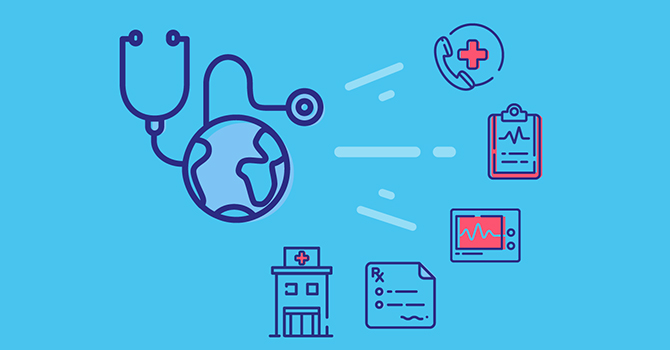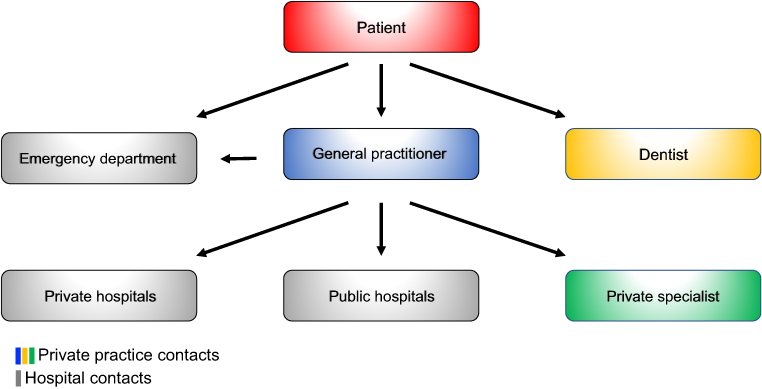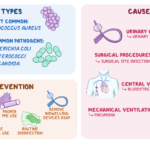The health care system in the United States is complex and ever-changing. With a variety of different policies and regulations, it can be difficult to keep up with the latest developments. This article will provide an overview of the current state of the U.S. healthcare system and discuss how it affects people’s access to care. We’ll also explore the implications of policy changes on the system and how it affects individuals and the health care industry. By exploring the health care system in the U.S., we can gain a better understanding of how it works, how it can be improved, and how it affects people’s lives.
Overview of the US Healthcare System

The US healthcare system is a complex beast, and it’s no surprise it’s often the topic of debate. The system is made up of a mix of government-funded programs like Medicare and Medicaid, private health insurance companies, and the millions of Americans who receive health care from their employers. It can be confusing to navigate, and it’s no wonder the debate about how to improve the system is so heated. From rising healthcare costs to the lack of access to care for some, the US healthcare system could use a little TLC. Luckily, there are plenty of initiatives in the works to make the system more efficient and more accessible for everyone. With a little more work, the US healthcare system could be the envy of the world.
Challenges Facing the US Healthcare System

The US healthcare system has faced a lot of challenges in recent years, with rising costs, increasing access issues, and a lack of efficient coordination among providers. Access to quality healthcare remains an issue for many Americans, with a growing number of people unable to afford the costs associated with medical care. In addition, the US healthcare system is highly fragmented and often fails to provide effective coordination among providers. This fragmentation can lead to inefficient care, delays in treatment, and duplication of services. Furthermore, the lack of transparency in healthcare costs makes it difficult for patients to understand the true cost of their care. Finally, the US healthcare system faces the challenge of creating a system that is both cost-effective and equitable for all citizens. Despite these challenges, the healthcare system can be improved with the implementation of new technologies and better coordination between providers.
Benefits of the US Healthcare System

The US healthcare system is an amazing resource for those of us who are lucky enough to have access to it. With its many benefits, it is no wonder why it has become such a crucial part of our lives. One of the biggest benefits of the US healthcare system is its ability to provide affordable health care for those who need it. With the rising cost of medical care, it is important to have access to affordable healthcare options. The US healthcare system also offers a range of services that are designed to meet the needs of different people. Whether it is preventive care, emergency care, or chronic care, the US healthcare system has something to offer. Another great benefit of the US healthcare system is its focus on preventative care. By providing preventative care, it can help reduce the number of illnesses and health problems that people suffer from. This can potentially save people money in the long run, as well as reducing the number of visits to the doctor. Finally, the US healthcare system has a range of programs and initiatives that are designed to help people stay healthy. Whether it is providing access to vaccinations, or helping people manage their chronic conditions, the US healthcare system is committed to helping people stay healthy and happy.
Solutions to Address the Challenges of the US Healthcare System

Solutions to address the challenges of the US healthcare system are popping up all over the place. One of the most effective solutions is creating a universal healthcare system that focuses on providing basic coverage for all citizens. This system would allow for an easier access to healthcare and make it more affordable for everyone to get the care they need. Additionally, many states are beginning to implement plans that allow for more options to choose from when it comes to health insurance. This allows for citizens to find a plan that works best for them, while still ensuring they have the coverage they need. Finally, there has been an increased focus on preventative care, which has been proven to reduce healthcare costs and improve overall health outcomes. Implementing incentives to encourage people to maintain healthy lifestyles is also a great way to help address the issues with US healthcare.
Preparing for the Future of US Healthcare System

The US healthcare system is facing a lot of challenges in the future. From rising costs to a lack of access, the current system is not sustainable for the long term. But there are steps that can be taken to prepare for the future of healthcare. Improving the quality of care and increasing access are top priorities. Increasing the focus on preventative care, expanding insurance coverage, and implementing payment reform are also key strategies. Investing in technology can also help to improve efficiency and reduce costs. Healthcare providers must also be prepared to embrace changes in the system, such as telemedicine, to ensure they can meet the needs of their patients. By taking proactive steps now, the healthcare system can be better prepared for the challenges it will face in the future.




